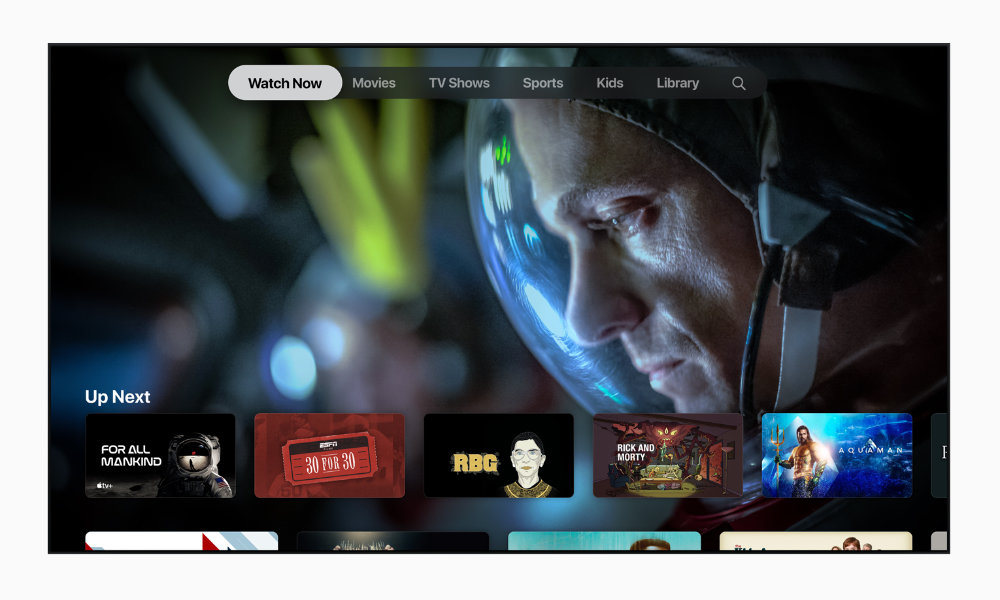Apple Has Officially Entered a New Era
 Credit: Apple
Credit: Apple
Toggle Dark Mode
With iPhone sales — and smartphone sales in general — having slowed down over the past couple of years, Apple has been in the process of reorienting itself into services for a while now, and although it’s working on a lot of other longer-term projects, there’s little doubt that the company is moving toward ensuring that it has a nice steady revenue stream from a variety of different services that it can offer its customers.
With the dawn of a new decade, however, it seems that Apple is openly stating that going forward a lot of its business is going to be about its services. In a new press release today that highlights last year’s accomplishments, the company says it’s ringing in a “new era of Services” — with a capital “S.”
To be clear, Apple isn’t entirely new at offering services — Apple Music has been around since 2015, and it was selling cloud services long before that, first with MobileMe and later iCloud storage — but 2019 marks the first year that the company diversified and really pushed into offering a more diverse set of subscription services, covering everything from news to gaming to original television shows and movies.
So it’s not a big surprise that this made 2019 “the biggest year for Services in Apple’s history,” as Senior VP Eddy Cue, puts it. However, it’s also not just about the usual suspects of Apple Music and Apple TV+; according to the numbers that Apple is sharing, it looks like they’ve been doing well across their entire portfolio, and they note their successes even in areas in which they don’t make any obvious revenue, such as podcasts.
By the Numbers
According to Apple, here’s how 2019 went in each of its mainstream service areas:
- The App Store saw a record $1.42 billion of spending between Christmas Eve and New Year’s Eve alone, plus $386 million on New Year’s Day for a new single-day record. These are 16 and 20 percent increases over the same time periods last year. Based on Apple’s usual 30 percent cut, this means Apple made around $500 million in revenue from the App Store alone in a little over a week.
- Apple Music now boasts over 60 million songs, and Apple says the time-synced lyrics introduced in iOS 13 have been a big hit, with over 50 percent of listeners having used it. Notably, however, the company failed to share any actual subscriber numbers for the service, which is very likely still lagging behind its chief rival, Spotify.
- Similarly, Apple is touting the launch of Apple TV+, Apple Arcade, and the Apple TV app, but conspicuously avoiding any mention of how many subscribers the new services have actually drawn in. Of course, with a free year of Apple TV+ available to anybody who has purchased a qualifying Apple device and also included with Apple Music student plans, the Apple TV+ numbers are likely quite skewed right now, but Apple Arcade should be made up of only paying subscribers at this point.
- Despite reports that it’s struggling with Apple News+, Apple seems to be less hesitant to share the fact that it’s drawing in over 100 million monthly active users in the four countries where it’s currently available, but if you read carefully, it’s clear that it’s including the free “Apple News” service in those numbers, referring to “active users” and not “active subscribers.”
- Apple’s Podcasts, which isn’t necessarily a source of revenue for the company (at least not yet), is now delivering over 800,000 shows in 155 countries, but again Apple hasn’t shared how many people are actually listening.
- Apple also fails to mention any actual metrics on Apple Card or Apple Pay other than to talk about how they’re leading innovation and sharing some of its plans to expand transit and student features.
- Apple also notes that 75 percent of iCloud users are now using two-factor authentication, and touts the benefits of Family Sharing for its Apple TV+, Apple News+, Apple Arcade, and Apple Music services, as well as iCloud storage plans, although it doesn’t offer any indication of how many users are actually paying for iCloud storage.
During its last quarterly earnings call, Apple shared that its services segment accounted for $12.5 billion in revenue, which was up $10.6 billion from the same quarter in 2018, which means that it grew 18 percent year-over-year, and Apple CEO Tim Cook noted that almost every one of the company’s services set new revenue records, making the services category now the size of a Fortune 70 company by itself.
In addition to all of the more obvious consumer-facing services, Apple also has a huge search deal with Google that’s estimated to be worth almost $10 billion per year by itself. The money Apple receives from its cut of App Store purchases and subscriptions is also believed to account for a similar portion of its revenue. Even if these numbers are accurate, however, it seems that they collectively now account for less than half of Apple’s services revenue, suggesting that it’s begun making substantial money in other areas as well, which includes not only the big consumer-facing media services like Apple Music, Apple TV+, Apple News+, and Apple Arcade, but also things like AppleCare, which is now available by subscription, and iCloud services.






